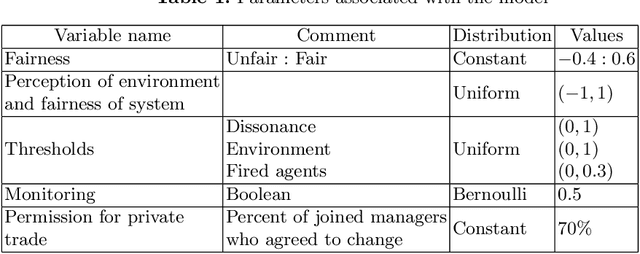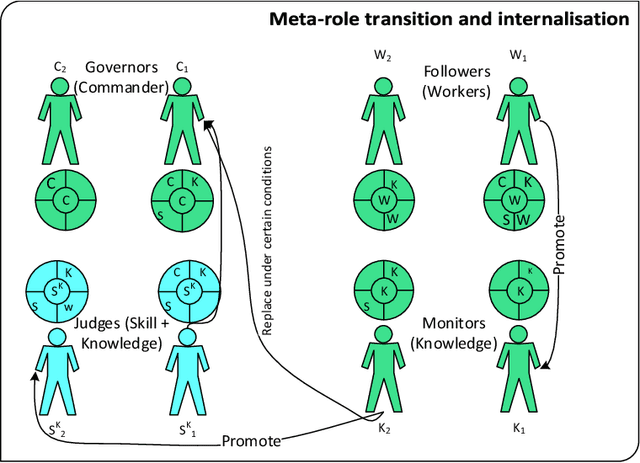Impact of meta-roles on the evolution of organisational institutions
Paper and Code
Aug 07, 2020



This paper investigates the impact of changes in agents' beliefs coupled with dynamics in agents' meta-roles on the evolution of institutions. The study embeds agents' meta-roles in the BDI architecture. In this context, the study scrutinises the impact of cognitive dissonance in agents due to unfairness of institutions. To showcase our model, two historical long-distance trading societies, namely Armenian merchants of New-Julfa and the English East India Company are simulated. Results show how change in roles of agents coupled with specific institutional characteristics leads to changes of the rules in the system.
* arXiv admin note: text overlap with arXiv:2004.11858
 Add to Chrome
Add to Chrome Add to Firefox
Add to Firefox Add to Edge
Add to Edge